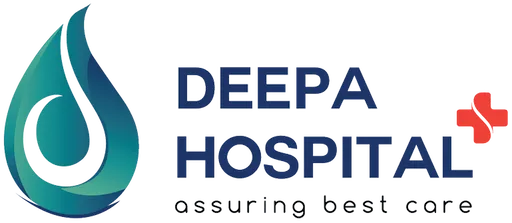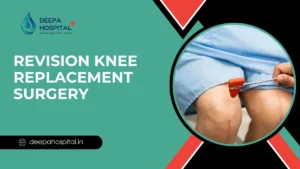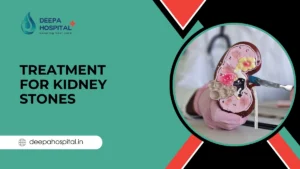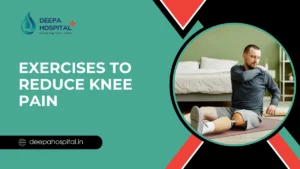Kidney stone management has advanced to offer a range of treatment options that can ease discomfort and prevent recurrence. At Deepa Hospitals, we offer tailored solutions to help patients overcome kidney stones effectively, from non-invasive methods to specialized surgical procedures. With expertise in innovative care, our dedicated team provides personalized support for every patient’s journey toward recovery. Trust Deepa Hospitals for compassionate and skilled care, designed to restore comfort and health.
What Are Kidney Stones?
Kidney stones are hardened deposits formed by minerals and salts within the kidneys. These can range in size, from small granules to larger stones that obstruct urine flow and cause significant discomfort. The stones result when compounds like calcium, oxalate, and uric acid concentrate in the urine and crystallize.
Types of Kidney Stones:
- Calcium Stones – The most common type found in kidney stone patients.
- Struvite Stones – Usually associated with infection.
- Uric Acid Stones – Develop when urine is overly acidic.
- Cystine Stones – A rare type often linked to genetics.
Knowing your stone type helps doctors determine the most suitable treatment.
How Common Are Kidney Stones?
Kidney stones affect millions worldwide and are increasing in prevalence. Statistics show that 1 in 10 people will encounter a kidney stone at some point, highlighting the need for effective kidney stone treatments. Although men are more susceptible, kidney stones can affect anyone.
Key Risk Factors Include:
- Dehydration: Insufficient water intake can lead to concentrated urine, elevating stone risk.
- Diet Choices: High salt and animal protein intake can increase stone formation.
- Family History: A genetic predisposition may heighten the risk of kidney stones.
With the rising occurrence of kidney stones, prompt treatment is essential to prevent severe symptoms and reduce recurrence.
Recognizing Kidney Stone Symptoms
Detecting kidney stone symptoms early can expedite treatment and minimize discomfort. Typical indicators of kidney stones include:
- Severe pain on one side of the back, side, or lower abdomen
- Sharp or burning pain while urinating
- Blood-tinged urine (which may appear pink, red, or brown)
- Nausea and vomiting associated with intense pain
- Frequent urination but in small volumes
These symptoms often signal the need for immediate medical care to identify the most suitable kidney stone treatment.
Why Do Kidney Stones Form?
Kidney stones are a result of certain substances in the urine, such as calcium, oxalate, or uric acid, becoming too concentrated and forming crystals. These crystals may accumulate into stones, causing blockages and pain.
Primary Contributing Factors:
- Dehydration: Limited water intake leads to concentrated urine.
- Dietary Choices: Excess sodium, sugar, and animal proteins increase stone risk.
- Underlying Health Conditions: Disorders like gout, obesity, and digestive issues can heighten susceptibility.
Understanding these causes can help in both treatment and prevention of future stones.
Comprehensive Kidney Stone Treatment Options
Non-Surgical Kidney Stone Management
Medications: For smaller stones, medications can aid in dissolving or passing them. Doctors may prescribe alpha-blockers, which relax ureter muscles, making it easier for stones to move through the urinary tract.
Hydration Therapy: Increasing fluid intake helps dilute urine, preventing new stones and facilitating the natural passage of small stones.
Non-surgical methods are recommended for smaller stones and are often the first line of kidney stone management.
Shockwave Lithotripsy (SWL)
- Non-Invasive Option: Utilizes sound waves to fragment kidney stones into passable particles.
- Outpatient-Friendly: SWL is usually performed as an outpatient procedure, allowing patients to go home the same day.
- Ideal for Medium Stones: Effective for stones 4–20 mm in size, breaking them into pieces small enough to pass naturally.
SWL offers an efficient and less invasive option for medium-sized stones, requiring minimal recovery time.
Ureteroscopy
- Precision Approach: A ureteroscope, a thin tube, is introduced through the urethra to locate and treat the stone.
- Laser Treatment: Stones are often fragmented with a laser, making them easier to pass or remove.
- No External Incisions: Minimally invasive and suitable for stones in the ureter or lower kidney.
Ureteroscopy is highly effective for stones that cannot pass on their own and provides precise, targeted treatment.
Percutaneous Nephrolithotomy (PCNL)
- Direct Access via Small Incision: A tiny incision in the back allows direct access to remove larger or complex stones.
- Efficient Removal: A nephroscope inserted through the incision enables quick and thorough stone removal.
- Best for Large Stones: Often recommended for stones too large to be passed or fragmented by other methods.
PCNL is particularly effective for treating larger stones, offering a reliable option for complete stone removal with minimal recovery discomfort.
Laparoscopic Surgery
- Minimally Invasive Surgery: Involves small incisions to access and remove stones directly from the kidney or ureter.
- Faster Recovery: Compared to open surgery, laparoscopic procedures offer reduced recovery times and lower postoperative pain.
- Optimal for Complex Cases: Suitable when other treatments aren’t effective, ensuring complete stone removal.
Laparoscopic surgery is a dependable solution for complex or recurrent cases, offering full removal with less downtime.
Conclusion
At Deepa Hospitals, kidney stone treatment emphasizes comprehensive care and prevention strategies to provide long-term relief. Our team offers advanced treatment options tailored to the unique needs of each patient, from non-invasive therapies to minimally invasive procedures. With a commitment to comfort, accuracy, and effective outcomes, Deepa Hospitals stands by you throughout your journey to relief. Turn to us for compassionate, expert care and reclaim a life free from kidney stone pain.





